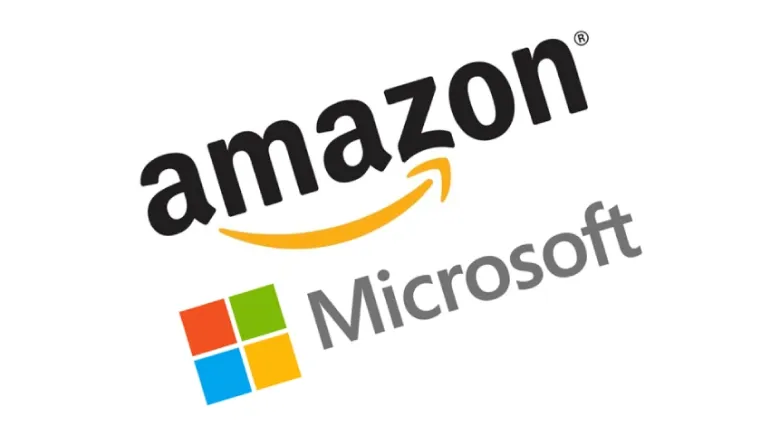
Imagine running your entire business from the cloud—servers, data storage, AI tools, and global scalability—all accessible with a few clicks. That’s the power of modern cloud computing. But when it comes to choosing the right provider, two names dominate the conversation: Amazon Web Services (AWS) and Microsoft Azure. One built the blueprint for cloud dominance, the other leveraged enterprise trust to become a powerhouse. So, which cloud computing giant should you bet on?
In this in-depth, unbiased comparison, we’ll break down AWS and Azure across key factors like market share, performance, pricing, security, and integration—helping you make a confident, informed decision. Whether you're a startup founder, IT manager, or tech enthusiast, this guide delivers real insights based on hands-on data and industry trends.
Let’s start with the big picture. According to Gartner and Synergy Research, Amazon Web Services holds a 32% share of the global cloud infrastructure market, making it the undisputed leader since launching in 2006. Microsoft Azure follows closely with around 23%, showing rapid growth thanks to its deep integration with Windows, Office 365, and enterprise ecosystems.
But market share isn’t everything. What really matters is how each platform performs when you need it most. Let’s dive into the core differences.
When your app goes viral or your e-commerce site faces Black Friday traffic, performance isn’t optional—it’s critical. AWS operates in 33 geographic regions with 105 availability zones, the most extensive global footprint in the industry. Azure isn’t far behind, with 60+ regions and strong presence in Europe and North America.
Here’s the kicker: AWS offers more granular control over compute instances and network optimization, making it a favorite for high-performance computing and AI workloads. Azure, on the other hand, excels in hybrid cloud scenarios—perfect for companies running on-premise data centers alongside cloud infrastructure.
Pro Tip: If your business relies on Microsoft products like Active Directory or SQL Server, Azure’s seamless integration can save you hours of configuration and reduce downtime.
Let’s talk money. Cloud costs can spiral fast if you’re not careful. AWS uses a pay-as-you-go model with granular pricing across thousands of services. While flexible, this complexity can make cost estimation tricky for beginners.
Microsoft Azure counters with simplified pricing bundles and hybrid benefit discounts—especially valuable if you already own Microsoft licenses. For example, using your existing Windows Server licenses on Azure can cut VM costs by up to 40%.
But here’s what most blogs won’t tell you: the cheapest option depends on your workload. For compute-heavy tasks, AWS often wins. For enterprise-grade hybrid environments, Azure frequently delivers better ROI.
Security isn’t a feature—it’s a foundation. Both AWS and Azure are compliant with ISO, SOC, HIPAA, GDPR, and other global standards. They offer advanced encryption, identity management, and threat detection tools.
However, AWS has a slight edge in maturity. With over 18 years of operational experience, it has refined its security protocols across industries—from fintech to government. Azure, backed by Microsoft’s Trust Center, shines in identity management through Azure Active Directory (AAD), making it ideal for organizations already using Microsoft 365.
Hot Take: If your team uses Microsoft tools daily, Azure’s built-in security policies reduce the learning curve and minimize human error.
Developers are the backbone of cloud innovation. AWS offers a vast array of services—over 200—and strong support for open-source technologies like Kubernetes, Docker, and Linux. Its CLI and SDKs are well-documented and widely adopted.
Microsoft Azure, meanwhile, is a dream for .NET developers and teams using Visual Studio. Its integration with GitHub (yes, Microsoft owns it) and DevOps pipelines makes CI/CD seamless. Plus, Azure’s AI and machine learning tools—like Azure Cognitive Services—are deeply integrated and easy to deploy.
Insider Insight: Startups building on open-source stacks often lean toward AWS. Enterprises modernizing legacy systems prefer Azure for smoother transitions.
These aren’t random picks—they reflect strategic alignment. AWS powers innovation-first companies. Azure empowers legacy-first organizations evolving into the cloud era.
So, who wins? The answer isn’t simple. If you want unmatched scalability, global reach, and flexibility—choose AWS. If your business runs on Microsoft products, values hybrid cloud, and needs tight integration with Office 365—Azure is your best bet.
And here’s the truth no one wants to admit: many enterprises use both. A multi-cloud strategy reduces vendor lock-in and maximizes strengths. AWS handles AI and storage, Azure manages identity and productivity—best of both worlds.
Final Thought: Don’t just follow the leader—choose the platform that aligns with your team, tech stack, and long-term vision.
The cloud isn’t a one-size-fits-all game. Whether you go with Amazon or Microsoft, what matters most is making a decision based on data, not hype. After all, in the world of cloud computing, preparation beats popularity every time.












Comments
There are no comments for this Article.